An evening with Dr R A Mashelkar
On March 15, we had an insightful session by Dr. R A Mashelkar, a top scientist and former Director General of Council of Scientific and Industrial Research (CSIR).
About Dr R A Mashelkar
Dr RA Mashelkar is known for his pioneering scientific research contributions, his transformative leadership, his tireless advocacy for inclusive innovation, his global championing of balanced intellectual property rights and his influential role in shaping science, technology, and innovation policies in post liberalized
Dr Mashelkar served as the Director General of Council of Scientific and Industrial Research (CSIR), President of Indian National Science Academy, and Chairman of National Innovation Foundation. He was also the President of Global Research Alliance, a network of RTOs from US, Europe, Asia Pacific and Africa with around 60,000 scientists.
Some 48 universities from around the world have honored him with honorary doctorates. He was elected a Fellow of Royal Society (FRS) (one of only three Indian engineering scientists selected in 360 years), Foreign Associate of US National Academy of Science, Foreign Associate of National Academy of Engineering, Associate Foreign Member, American Academy of Arts & Sciences, Fellow of Royal Academy of Engineering, U.K., Fellow of World Academy of Arts & Science, USA, and Fellow of US National Academy of Inventors.
Dr Mashelkar won the TWAS-Lenovo Science Prize, which is the highest science award of The World Academy of Science. He also won the JRD Corporate Leadership Award, the only scientist to win it so far.
Dr. Mashelkar has been on the Board of Directors of several reputed companies from Reliance Industries Ltd. to Tata Motors Ltd. to Hindustan Unilever Ltd.
Dr Mashelkar served as a member of Science Advisory Council to the Prime Minister set up by successive Indian governments for over three decades. He chaired 16 Committees (named after him) set up by the Government dealing with complex national challenges.
Dr Mashelkar was the first Asian Scientist to receive the Business Week (USA) award of ‘Stars of Asia’ at the hands of George Bush (Sr.), the former President of USA. The President of India honored Dr. Mashelkar with Padmashri (1991), Padma Bhushan (2000) and Padma Vibhushan (2014), three of the highest civilian honors.
Three key lessons
- Aspirational pole-vaulting leadership
- Compassionate inclusive leadership
- Convex lens leadership
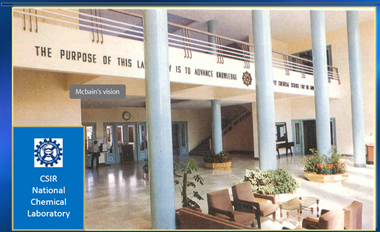
Aspirational pole-vaulting leadership
On June 1, 1989, Dr Mashelkar was appointed Head of National Chemical Laboratory (NCL), Pune. Within two hours, he had to address his team in the auditorium.
India was the not an open economy then. Those days, it was more about reverse engineering and import substitution. India had a dismal record of patenting.
Dr Mashelkar told his scientists that NCL would become International Chemical Laboratory serving the world market. From publish/perish, the new mantra became patent, publish, and prosper.
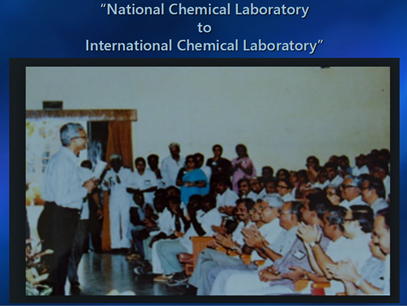
This bold vision paid off. NCL’s three US patents on Polycarbonates licensed to GE in 1994 for around $1 million, marked the first ever reverse transfer of technology from India. The strategic alliance between NCL and GE over 10 years led to a license fee of $15 million - considered as a model in global R & D partnerships. Other partnerships with leading MNCs like DuPont, Dow, Procter & Gamble, etc followed.
Jack Welch, Chairman, GE, was so much impressed that he asked, “if they are so good why are we not there?” The Jack Welch R&D Centre in Bangalore triggered India’s emergence as a global R&D Hub in 2016. Incidentally, Dr Mashelkar had referred to this possibility in his Lala Karamchand Thapar Centenary Memorial lecture in 1995.
Note: During the Q&A, Dr Mashelkar mentioned that India does not have a patent culture. In 1895, when JC Bose invented the wireless, Sister Nivedita asked him to apply for a patent. But he did not. In 1998, when the importance of patents was articulated, there was a lot of resistance from scientists. It took even Dr Abdul Kalam some time to appreciate the value of patents. Interestingly, as Dr Mashelkar explained, we must read a patent in such a way that we can bypass it, i.e. find a way around it. But we must write our patent in such a way that it cannot be bypassed.A leader should set tall goals, have faith in people and support them in all possible ways. Reliance CEO, Mr. Mukesh Ambani had once discussed with Dr Mashelkar about the need to leapfrog. Dr Mashelkar found this a limiting expression. He came up with the slogan of Pole vaulting which sounded more aspirational. The goal for Reliance became creating 100 pole vaulting innovation leaders:
- Create 100 innovation leaders who will pole-vault and not just leapfrog.
- Give them massive opportunities through growth initiatives.
- Teach them the Reliance way of making the impossible possible:
- Set unreasonable goals.
- Challenge conventional wisdom.
- Get ordinary people to do extraordinary things.
- Suffer from divine discontent.
- Convert adversity into opportunity.
- Generate exponential value through innovation and leadership.
Reliance Jio pole vaulted to 50 million users in just 83 days. India pole-vaulted from 155th position to No 1 position in mobile data usage after Jio’s entry in Feb 2017.
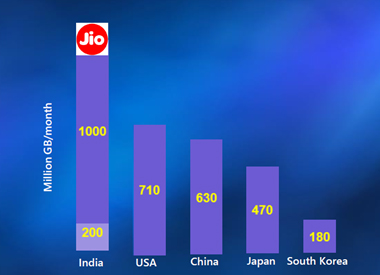
Dr Mashelkar and Ravi Pandit published the book” From leapfrogging to pole-vaulting- Creating the magic of radical yet sustainable transformation.”
Compassionate inclusive leadership
Dr Mashelkar has drawn inspiration from the Satyarthi Movement for Global Compassion (SMGC) which aims to ignite ‘Compassion in Action’ in the world. The movement was born out of the path-breaking endeavours of Mr. Kailash Satyarthi, the 2104 Nobel Peace Laureate. Mr Satyarthi has inspired millions of people across 140 countries to fight against child slavery, and ensure freedom, education, equality, and justice for the most marginalized people. All of us are born with an inherent capacity for compassion. When we have compassion, the response to the suffering of self and others is instantaneous and instinctive. Compassion is the driving force that pushes us to help others.
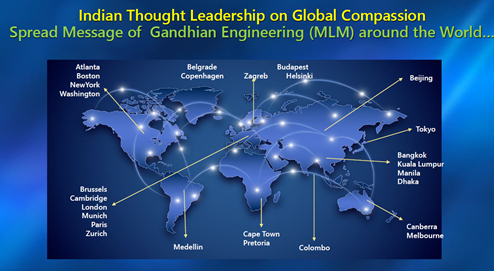
Dr Mashelkar is a champion of the Gandhian engineering movement which emphasizes affordability, accessibility, and adaptability. Mahatma Gandhi had once mentioned: “The world has enough for everyone's need, but not enough for everyone's greed.” Another of Mahatma’s tenets: “I would prize every invention of science made for the benefit of all.” Dr Mashelkar has moved across the world and given lectures on this topic. Dr Mashelkar has also set up a foundation in his mother’s (Anjani) name to encourage Gandhian innovations.
Some of the notable successes of the Foundation are:
Young Myshkin Ingawale: He has developed a Rs 10 Non-invasive Hemoglobin Test which is noninvasive and does not need needles. The test involves capturing the picture of conjunctiva and using the method of reflectance photometry to estimate hemoglobin content in blood.
ECG test: Sanket is a credit card-sized heart monitor, which acts like a portable ECG machine, making it possible to monitor the heart condition anywhere, anytime. It costs only Rs 5.
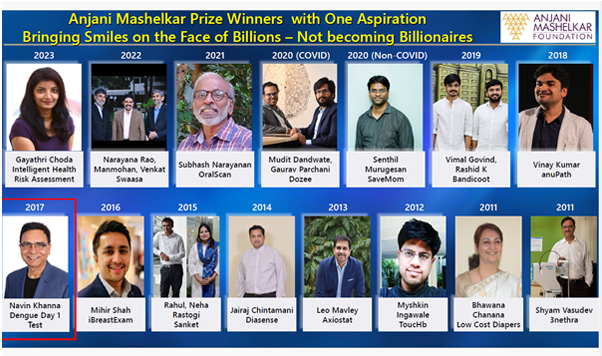
Convex lens leadership
Dr Mashelkar was born in a poor family. His father died when he was just 6. He studied under streetlight and attended municipality schools. Yet, he had some great teachers. One of his teachers was inspirational. Using a convex lens, he demonstrated how a parallel beam could be focused and used to burn paper. The lesson the young Mashelkar learnt was that if we focus, we can achieve anything.
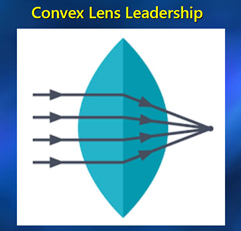
Dr Mashelkar brought the different CISR labs together. He became President, Global Research Alliance that included 60,000 Scientific Staff from 9 Research & Technology Global Organizations.
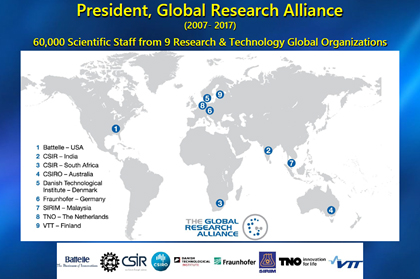
The New Millennium Indian Technology Leadership Initiative (NMITLI)
CSIR’s New Millennium Indian Technology Leadership Initiative (NMITLI) Program (NMITLI) aims to obtain an inverse risk-investment profile i.e. low investment - high-risk technology areas (with global leadership potential). Investments increase as developments take place and the projects move up on the innovation curve with reduction in risks. Instead of funding a project based on requests/applications, the program identifies the areas for development based on national consultation and invites best partners from institutions, academia and private sector to play a role in the development.
Under Dr Mashelkar’s leadership, NMITLI became India’s First Big Risk-Taking PPP Program. NMITLI gave India the first Indigenous Hydrogen Fuel Cell Bus.
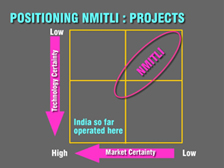
KPIT Technologies has developed the hydrogen fuel cell system in collaboration with CISR-NCL for Cochin Shipyard. This technology costs around $ 400 per kilowatt compared to $ 1,000 -1,200 globally.
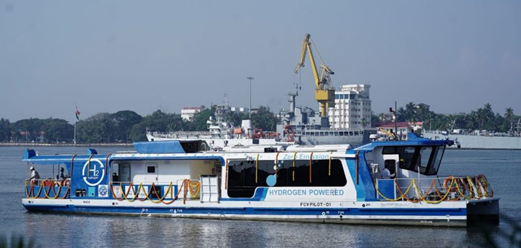
Global exposure
As a world bank consultant, Dr Mashelkar has learnt several important lessons while restructuring institutions in different countries: Indonesia, Croatia, Serbia, Vietnam, Turkey, Bangladesh, Sri Lanka. Dr Mashelkar has also learnt several important lessons while chairing/ being part of corporate innovation councils at Reliance, Thermax, KPIT Technology, Persistent, Microsoft and Michelin.
Strong messaging
Strong messaging is the key. Leaders must be able to articulate their vision in a few words. Here are some of Dr Mashelkar’s famous words:
- Patent, Publish & Prosper
- Innovation, Compassion & Passion
- Expansion, Inclusion & Excellence
- Democracy, Diversity & Demography
- Talent, Technology & Trust
- More from Less for More
Five learnings
- Aspirations are our possibilities. We must keep them high, for ourselves our organization, our society, our nation.
- Like instant coffee, there is no instant success. We must work hard in silence. Let success make all the noise.
- Purpose, perseverance & passion. We should not quit early. Winners are never quitters. Quitters are never winners. FAIL is the first step in learning.
- When we knock and the doors of opportunity don’t open, we must create our own doors.
- There is no limit to human endurance, achievement, imagination, except the ones we put on our mind. Our mindset should be: ‘My best is yet to come & and today is going to be that day…
Q&A
At the age of 82, Dr Mashelkar is working harder than when he was 20. What is the secret? It is about doing what we love and loving what we do. Purpose, perseverance, and passion are important. We must take failures in our stride. For example, Chandrayan 3 succeeded due to the learnings from the failures of Chandrayan 2.
We must keep our mind open. We never know from where we will get inspiration. We should be good listeners. Once Dr Mashelkar showed the letter Z to his granddaughter. She thought it was N. From the angle she was looking, it was indeed N. Looking at the same things from different perspectives is hence important for leadership.
Dr Mashelkar leveraged the lesson he learnt from his granddaughter during an important negotiation. Microsoft had a major dispute with an Indian company. The CEO of that company had gone to jail. Thanks to Dr Mashelkar’s intervention (He narrated the ZN story to the two sides.) the two sides were able to appreciate each other’s point of view. The conflict was satisfactorily resolved after a couple of hours. (They kept going back to ZN when the discussions were reaching a stalemate.) Conflicts (Ukraine, Gaza, etc) are often the result of lack of listening to and appreciation for the other side.
This must start from school. Our educational system must move from rote learning to learning by doing, creating and cocreating.
We should train ourselves to relate the unrelatable, i.e. finding connections among two seemingly different things. That is how Henry Ford established the assembly line. He saw in the slaughterhouses that the workers were not moving. In his assembly lines the parts would move towards the worker rather than the other way around. Companies have learnt how to change models quickly in the assembly line from Formula 1 where tyres must be changed very fast.
Critical thinking is about observation, analysis, and synthesis. We must always question things. That is how Einstein challenged Newton.
Our system is very hierarchical. When GE was setting up the Jack Welch Technology Centre in India, Dr Mashelkar advised the company to embrace a new culture, not the yes sir culture common in India. If we keep saying yes sir, we will not be able to challenge any idea. Contrarian thinking will disappear.
Dr Mashelkar recalled how he had been inspired by the convex lens experiment done by his teacher in school. We must make science interesting to children. We must encourage a questioning attitude.
We must make children aware of the benefits of science. During the pandemic, we saw a spurt of innovations. From a situation of no testing kits, vaccines or therapeutics or masks, we became major exporters within one year. This was a demonstration of the value of science for society.
Solution engineering is the most powerful branch of engineering. We must take the benefits of science to society.
The 16 Mashelkar committees are well known. Chairing these committees was baptism by fire. After the Bhopal gas tragedy, Dr Mashelkar was appointed the technical assessor.
Any issue has two sides. For example, there has been a lot of clamour over cleaner fuels. To bring down sulphur content from 500 to 50 ppm, calls for an investment of Rs 50-70,000 crores in hydrodesulfurization over 4-5 years. The transition from Euro 3 to Euro 4 ( a drastic reduction in pollutant levels) needed time. Dr Mashelkar was in favour of a longer schedule. The NGOs accused him of being soft on the oil companies. But Dr Mashelkar’s’ recommendation was vindicated. The government could not implement even the longer timeline he had proposed.
Responding to a question on India’s ability to achieve net zero, Dr Mashelkar mentioned that the time scale is challenging. We have a 70% dependency on coal. But we cannot close the coal mines overnight. The transition must be gradual and just. Managing the transition will be challenging.
Individual resilience is important. Nelson Mandela did not break down even under severe stress during the apartheid regime. Companies too should strive for resilience.
Dr Mashelkar provided an outstanding example of resilient thinking. Reliance decided to ensure that its refinery in Jamnagar could handle all kinds of crude from the cleanest to the dirtiest. Today, it can handle 230 types of crude. The result of this kind of thinking is that no matter what happens in the oil markets, Reliance continues to make money. When such bold ideas are mooted, we often ask: has it been done before? But that is the opportunity.
When as a college dropout, Bill Gates offered software to a hardware company, he was told to come after a month. Gates was relieved because he did not have the software ready and needed time. The company trusted Gates and Gates trusted himself. So trust is important.
Before 1934, we only had natural farming. It is our tradition and farmers do not need any hand holding. But our population has increased considerably over the years. We must feed 1.6 billion people in the coming years. So we need all kinds of farming- natural as well as chemical. The future is not ammonia (The Haber process is polluting.) but green hydrogen and ammonia. We also must embrace green power. Natural farming has an important role to play but all the demand for food cannot be met by natural farming.
Prof Anil Gupta of IIM Ahmedabad is a pioneer in this area. If Mahatma Gandhi started the padayatras, Prof Gupta has started the shoda yatras. He believes in going to the villages and finding out what ideas are there. Everyone is someone. A mind on the margin is not a marginal mind. Even farmers can innovate. They want to be part of the solution.
The challenges they faced have motivated the people in the remote areas to innovate. That is what has triggered many grassroots innovations.
An 80-year-old man designed a cycle which could run on water because his wife was stuck at the other end.
Consider Remya Jose, an 8-year-old girl from Malappuram in Kerala. Her father was down with cancer and her mother was ill. She had to make a long journey to and from school. Then she had to wash clothes. So she had no time to study. Remya designed a washing machine which could be operated with a pedal. So she could study while the clothes were being washed.
Note: Remya had watched the functioning of an electric washing machine and thought of substituting the electrical power with mechanical power. She drew the basic diagram. Her father took it to a nearby automobile workshop and got it fabricated. The washing machine consists of an aluminium cabin in which there is a horizontal cylinder made of iron net wire. The cylinder is connected to a pedalling system which consists of a cycle chain, pedals, and a seat. Clothes are put in the cylinder, the cabin is filled with water to the level of the clothes, washing powder is added and left to soak for at least 10 minutes. Then the pedal is pressed for three to four minutes. The cylinder rotates at a very high speed with the clothes inside, cleaning them thoroughly. Soap water drains out, the barrel is refilled and the process repeated. By pedalling, the washed clothes are centrifuged and become about 80% dry.
13-year-old Shalini in Bihar noticed that her grandfather was finding it difficult to climb the stairs with a walker. She designed a frontloaded walker. She is earning more through royalty than her father.
Note: Shalini’s grandfather loved to plant. He had a beautiful garden on the roof where he took his daily walk. Sadly, he had an accident after which he had to use a walker for support. He could walk on an even surface but it was not flexible enough to climb the stairs. Shalini noticed his helplessness. She realized that if the front legs were adjustable instead of fixed, they could be used to climb stairs.
Prof Samir Brahmachari, the head of CSIR has leveraged Web 2.0 for open innovation. The collaborative drug discovery platform focuses on neglected tropical diseases, which draw limited attention from the pharma companies. This program has a global community with over 7500 participants from 130 countries comprising researchers, academia, students, industries, educational institutions and so on. Anyone committed to the discovery of drugs for neglected diseases can participate in the program. Some 40% of the participants are students.
Mr Mukesh Ambani launched a similar campaign in Reliance. Ideas came from all levels. They were assessed and quickly taken up for implementation. The Reliance innovation platform has been patented. Each function started to respect the others. It was about appreciating each other and leveraging the power of everyone. It was about getting extraordinary things done by ordinary people.
When the caterpillar becomes a butterfly, it involves transformation. The point to note is that transformation leads to something different. Similarly, digitization is not the same as digital transformation. NCL 2.0 is very different form NCL 1.0. it is not about marginal improvement but a step change that spans technology, business model and operations.
India and China were comparable a few decades back. In fact, in 1998, we were ahead of China in super computers. Today China has 40 supercomputers. We have only 4. China spends 2.3% of its GDP on R&D compared to our .68%. Since the Chinese economy is five items bigger, their R&D spending is 15 times more. The Indian government invests 2/3rd of the amount and the private sector one third. The private sector must invest more in R&D. Ultimately the 3 Ds will work in our favour: Diversity, Demography and Democracy.
India is moving slowly but we will get there. We are like a pond with lilies. The number of lilies doubles every day. On the 28th day, the pond is only one fourth full, on the 29th day, half full. On the 3oth day, the pond is full.
Several examples illustrate this point. There is an exponential rise in startups. LED usage has grown from exponentially in the last 7 years. We were an unbanked country till recently. Today 46% of our banking transactions are digital in nature.
We must draw Inspiration from these achievements and have faith in ourselves.
